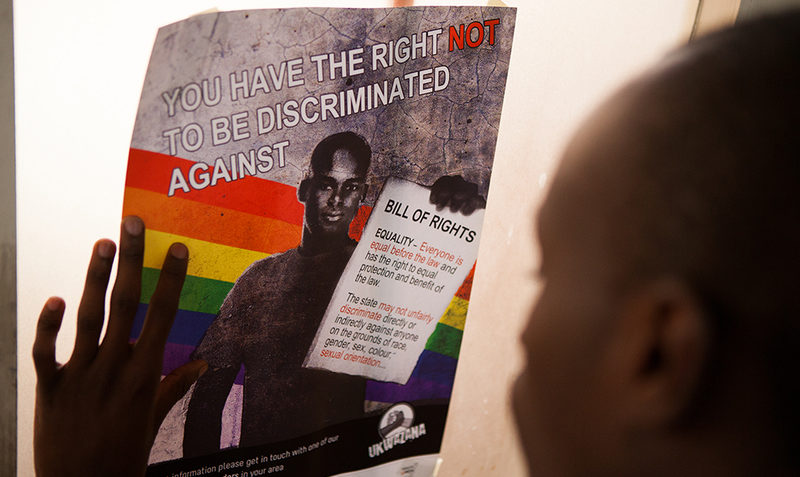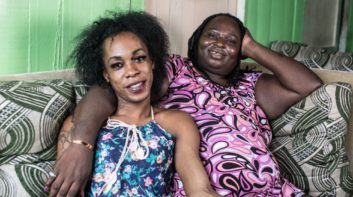Rapid Response Fund FAQs


Find our answers to some of the frequently asked questions (FAQs) we receive about the Rapid Response Fund.
Applying for an Emergency Response Grant
How can we apply for an Emergency Response Grant?
You can submit an application using the online form. You will need to answer some initial questions to determine eligibility.
When can we submit an application for funding?
You can submit an application at any time; we do not have specific calls for applications.
What are the criteria for submitting an application?
The eligibility criteria is detailed here.
What does Frontline AIDS RRF not fund?
The eligibility criteria is detailed here.
What is HIV-related human rights work?
Frontline AIDS recognises 8 areas of HIV-related human rights work: stigma & discrimination reduction; legal services; legal literacy; training healthcare providers; sensitising lawmakers and enforcement; reducing discrimination against women including gender-based violence; monitoring and reforming relevant laws, regs, policies; and emergency response to human rights violations.
How much can we apply for?
The maximum funding available as an Emergency Response Grant is $15,000 or the local currency equivalent. However, please make your budget as accurate as possible. We may also ask questions about your proposed budget. You may not receive the full amount you apply for. You will be required to report against your budget so we encourage you to think carefully about the proposed activities and costs.
Can individuals apply for funding?
You can only apply as an organisation that is working on HIV-related human rights issues.
Can coalitions and networks apply for funding?
Coalitions and networks can apply for funding where there is a clear and specific need for their role. Coalitions may be required to nominate a lead organisation who will be contractually responsible for the grant.
Can organisations that are not legally registered submit an application?
Organisations are not required to be legally registered. However, as part of our due diligence process, we may request evidence of your organisation’s existence and recent work. We may also request that you have a fiscal host that can administer the finances on your behalf.
Which languages can we submit our application in?
You can apply in English, French or Spanish. Please use the Google Translate button on the application page. Click to view the eligibility criteria in French, Spanish, and Portuguese.
Which currency should we write our budget in?
You should write your budget in the currency of the bank account you wish to receive the grant payment to. The currency conversion rate will be calculated by Frontline AIDS on the day of payment.
Can we request budget to cover our staff and operating costs?
We will allocate a standard 12% indirect cost recovery to each successful grant. It is for the applicant organisation to decide how this is used to support core operating costs. We will only consider budget lines for salaries where there is a specific need for short term technical expertise that is critical to the proposed activities.
What is the role of a fiscal host?
A fiscal host is an organisation in the same location as the Rapid Response Fund grantee. It is an organisation that welcomes others to operate through their structure, so projects can use the host’s legal entity and bank account instead of setting up their own. The host provides administrative services, oversight, and support. Staff at a fiscal host will be required to confirm in writing that they agree to carry out these responsibilities.
How are applications reviewed?
All applications are processed by the Rapid Response Fund team, who carry out due diligence checks, including contacting your referees and our advisors in-country. We may contact you for further information and evidence to support your application. All applications are considered on a case-by-case basis.
What additional information or documentation might Frontline AIDS request?
As part of our due diligence process, we may request additional information or evidence. This could include copies of your organisation’s registration certificate; copies of project reports, funding contracts, or evaluation reports; your organisation’s annual report; online or documented evidence of the situation prompting the urgent situation. We suggest that you prepare relevant documents or internet links in case these are requested by Frontline AIDS.
What examples of documentation or evidence should not be submitted to Frontline AIDS?
We seek to safeguard the dignity and security of individuals. Please do not send any documents containing personal or confidential information; video footage or images with identifiable individuals (unless you have a record of their consent to share the images); or any graphic content. If you send these types of materials your application may be rejected.
How quickly will our application be reviewed?
We will acknowledge your application as soon as it is received. The processing time varies according to the information you provide and how quickly we can verify this. Our aim is to provide a decision on applications within 2 weeks. We strongly suggest that you notify your referees to support their prompt response which helps us process applications faster.
We have applied to Frontline AIDS Rapid Response Fund before, can we apply for another grant?
There are no restrictions on the number of applications an organisation makes. However, if your application was previously rejected and you received feedback, we ask that you consider this carefully before submitting a new application. If you have previously received an emergency response grant, we ask you to carefully consider whether your current needs relate to a new, unforeseen threat or opportunity. We are unable to provide new grants for a situation that has previously been awarded an emergency response grant.
We are currently implementing an emergency response grant. Can we apply for another grant?
We cannot normally consider a new grant until you have completed and reported on an existing grant. If there is an acute emergency we suggest that you write to the Frontline AIDS staff member you have been in touch with.
Can an organisation submit two or more applications at a time?
An organisation can only submit one application at a time.
Why was our application unsuccessful?
There are several reasons that applications are rejected, including (but not limited to): an application does not meet the criteria; requests for ineligible items/activities; misrepresentation in applications; incomplete applications; the identification of alternative responses such as reallocation of existing funds or collaboration with other organisations. We are unable to provide specific information about why an application is unsuccessful.
Eligible Countries
Which countries can one apply from?
Organisations in the following countries may apply:
- Caribbean – Haiti, Jamaica, Dominican Republic, Guyana, St Vincent and the Grenadines, Trinidad and Tobago.
- East Africa – Ethiopia, Rwanda, South Sudan, Tanzania.
- South East Asia – Cambodia, Vietnam.
- Southern Africa – Angola.
- West and Central Africa – Benin, Cameroon, Chad, Côte d’Ivoire, Gabon, Gambia, Ghana, Mali, Senegal, Sierra Leone, Togo.
How are the eligible countries selected?
Frontline AIDS selects countries based on analysis of data about the state of the HIV epidemic, human rights, and civil society. Eligible countries are those with a high HIV burden and restricted civil society freedoms.
Managing your grant
We applied and did not get the full amount we requested for, why is this?
Frontline AIDS assesses your proposed budget against its guidelines and standardised costings, and also considers what value of funding you have experience of managing. We are unable to support budget items outside our mandate.
We were successfully awarded an emergency response grant, but we need to adjust our activities and/or budget. Can we?
We understand that there may be unforeseen circumstances that prompt a change to your agreed activities or budget. Please contact the Frontline AIDS staff member you have been in touch with to explain the new circumstances and needs.
We were successfully awarded an emergency response grant. How do we report on it?
Each grant holder is required to submit a full report using the template provided. You will need to collect and keep receipts and evidence of expenditure for the report.
When do we have to report on our emergency response grant?
Each grant holder is required to submit a full report using the template provided, within 2 weeks of completing their grant activities. This date is calculated according to when the grant was disbursed and its duration. We will write to prompt you if we do not receive the report within this time.
Safeguarding and consent
What happens to the information we provide in the application process?
Information supplied via the application form is retained by Frontline AIDS in order to inform monitoring and learning from the Rapid Response Fund, and in order to assist any future applications. Data is secure and accessible only to the Rapid Response Fund team.
What does Frontline AIDS do to ensure that no harm is done through Rapid Response Fund grant-making and implementation?
Frontline AIDS has a has a zero tolerance approach to malpractice and misconduct and we take all reports seriously. We are committed to providing a clear and straightforward reporting system and we handle all information relating to malpractice and misconduct appropriately and responsibly. Malpractice and misconduct could be criminal, financial, sexual or HR-related and it can be brought to our attention by anybody. Frontline AIDS undertakes due diligence on all applications using a standard process and set of tools that adhere to our own Code of Conduct and Safeguarding Policy. All organisations that are awarded a Rapid Response Fund grant agree to terms and conditions which include a clause about safeguarding. Please see here for more information, including how to report any concerns regarding malpractice or misconduct.


